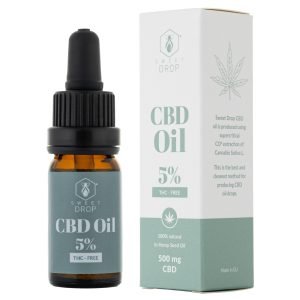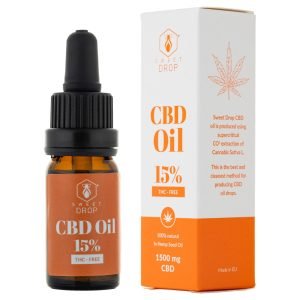Cannabidiol (CBD) is a naturally occurring plant-derived compound that is highly abundant in cannabis. It is also the primary non-addictive component of cannabis. The use of CBD as a supplement for pets is growing worldwide, leading to an increase of specially formulated CBD products for domestic animals.
CBD has been shown to be very useful in treating many mental and neurological disorders in humans, such as anxiety. It also has effects on physical issues such as reducing inflammation, pain, and epileptic seizures.
What are the reasons for CBD oil use for pets?
According to an online survey in the USA, the primary reason is for its anxiety-reducing and calming effects. This includes addressing issues like separation anxiety, nervousness, aggression, and specific situations such as fear of fireworks or traveling.
Research discussed in this article specifically examines CBD’s effects on separation anxiety in cats and dogs, even though the survey also indicated that CBD is used on rabbits and even horses for other purposes.
There are also theories that CBD might help with skin and autoimmune diseases in pets, but more research is needed to confirm these hypotheses.
Reducing separation anxiety in cats and dogs
Separation anxiety in domestic animals, such as dogs and cats, refers to a condition where the animal experiences significant distress and anxiety when separated from their owner or caregiver. This anxiety can manifest in various ways, some of them being excessive vocalization (whining, barking, meowing), destructive behavior (chewing furniture, digging, scratching), inappropriate elimination (urinating or defecating indoors).
Besides humans, domestic cats also possess an endocannabinoid system that interacts with CBD in a similar way to how it does in humans, according to researchers. However, there is still limited understanding of the clinical implications of CBD for animals. In a study on CBD and separation anxiety in cats, researchers observed ten healthy cats. When the caregivers briefly left and returned, the cats showed different responses: some were less stressed with balanced contact-exploration behavior, while others remained stressed and stayed excessively close or showed avoidance behavior.
When given a placebo, the cats spent more time in physical contact or avoided the caregiver more compared to when they received CBD. On the other hand, they stayed closer to the caregiver when given CBD versus placebo. The cats seemed more distressed after receiving the placebo during the separation. Balanced contact-exploration behavior (indicating less stress) was more evident in cats given CBD than in those given the placebo. These results suggest that CBD may reduce anxiety in cats.
A study was conducted to investigate the effects of CBD on the behavior of healthy domestic dogs, particularly focusing on their vocalization when temporarily separated from their caregivers. Ten healthy dogs aged 4 to 7 years experienced temporary separation from their caregivers twice: once after receiving CBD at a dose of 2.0 mg/kg/day over a 2-week period, and once after receiving the same amount of olive oil as a placebo over the same period.
During the behavioral assessment, researchers measured the total duration of vocal activity exhibited by the dogs before and after separation from their caregivers. It was observed that all 10 dogs vocalized more frequently when left alone (after separation) compared to when they were with their caregivers (before separation), regardless of whether they received CBD or placebo. However, following CBD administration, the increase in vocalization was significantly less pronounced compared to after placebo administration.
The researchers hypothesized that the reduced vocalization after CBD administration could be due to the anxiety-reducing effects of CBD, similar to what has been observed in humans. This suggests that CBD may have potential benefits in alleviating separation-related distress in healthy domestic dogs.
Is it safe to use CBD for pets?
The tolerability of various orally administered cannabinoids in dogs was assessed in a 90-day study. Healthy beagles (16 males and 16 females) were divided into four treatment groups and received either medium chain triglyceride oil (control) or one of the following treatments: broad spectrum cannabidiol, broad spectrum cannabidiol with cannabigerol, or broad spectrum cannabidiol with cannabidiolic acid at a dose of 5 mg total cannabinoids per kilogram of body weight per day.
The dogs were closely monitored daily with detailed weekly clinical examinations. Observations continued for an additional 2 weeks after dosing. The study included assessments of body weights, food consumption, and clinical pathology. The study concluded that the cannabinoids were well tolerated when administered to healthy male and female beagles over a 90-day period.
The authors of the above described reasearch claim, that based on these findings, along with other published studies and post-market surveillance data, hemp-derived cannabinoids appear to be well tolerated in healthy dogs at a dosage of 5 mg/kg body weight per day.
Source:
https://pubmed.ncbi.nlm.nih.gov/38356586/
https://pubmed.ncbi.nlm.nih.gov/38322918/
https://pubmed.ncbi.nlm.nih.gov/38496308/
https://onlinelibrary.wiley.com/doi/10.1111/jsap.13619
https://pubmed.ncbi.nlm.nih.gov/38356586/
https://pubmed.ncbi.nlm.nih.gov/38322918/
https://pubmed.ncbi.nlm.nih.gov/38496308/
https://onlinelibrary.wiley.com/doi/10.1111/jsap.13619









